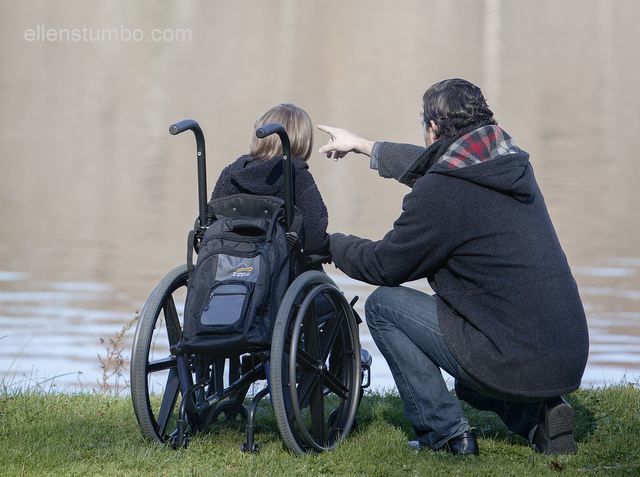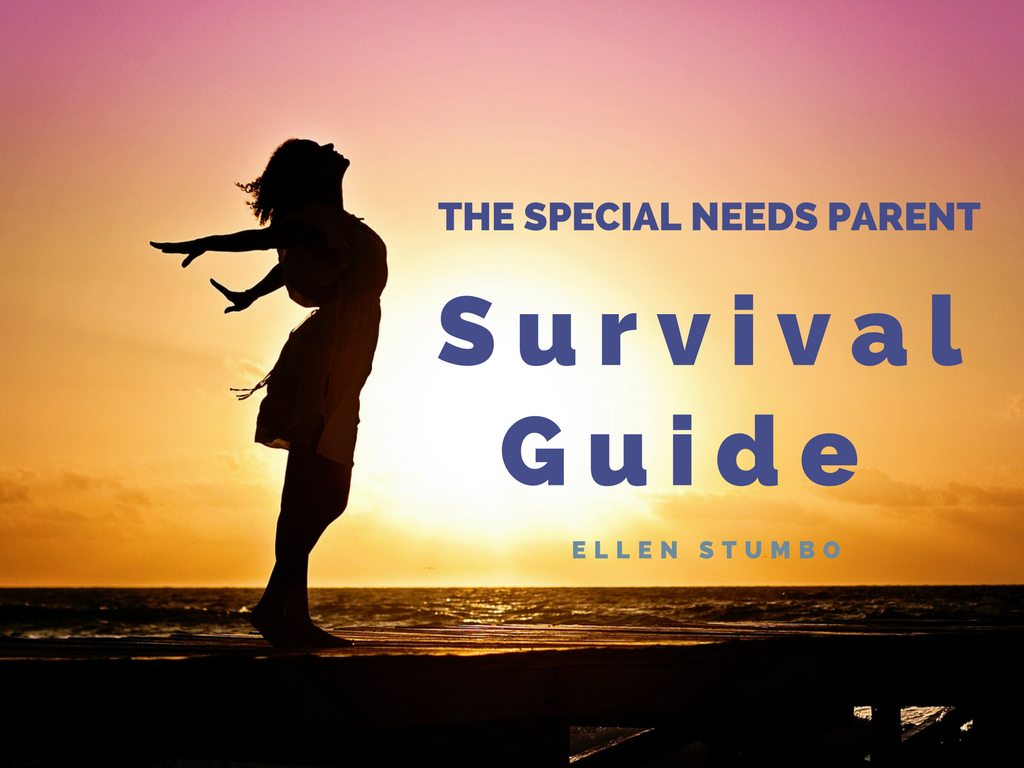When I was a child, an adult tried to explain to me what Down syndrome was, they ignorantly said, “It’s like they only have half a brain.” The damaging and dangerous implications of that statement were not clear to me as I was only a child.

Because the information came from an adult, I took the statement as accurate. I also interpreted the statement as individuals with Down syndrome being only “half” a person, and I felt sad for them.
Before I continue, I have to pause to make one thing clear: individuals with Down syndrome are full people. Suggesting they only have half a brain to explain an intellectual disability is not only problematic, it is wrong and dangerous. These types of statements are not based on real evidence, science, or fact. They are speculative and ignorant. Also, there are people who live with only half a brain and who live full lives — they are full people.
Alarmingly, these types of negative statements are not only said about Down syndrome, but about disability in general. I believe this is why, for many parents, dealing with a diagnosis of disability for our children is so hard. From the time we were children, many of us were told disability is bad and terrible and tragic. These negative disability attitudes are taught by adults and society, and many of us have limited reference to question or challenge those ideas. It also doesn’t help that, upon diagnosis, medical professionals tend to present information as grim, with lists of everything a child “won’t do” and possible complications.
For many of us, a diagnosis means confronting every stereotype and negative disability attitude we may have believed to be true, and the process is incredibly difficult. I now believe the grief I experienced was misplaced as the basis of that grief was inaccurate. The grief I experienced was based on damaging stereotypes and my personal negative disability attitudes. The good news is, I was able to grow and learn and evolve.
What is especially concerning is that my experience is not isolated. There is still a large percentage of people who see disability as bad, terrible, and tragic. This translates into a belief that having a child with a disability is “less.”
It looks like this:
Your child uses a wheelchair and therefore cannot be the star athlete. Less.
Your child has a physical disability and therefore won’t be running around with the other kids in the playground. Less.
Your child has an intellectual disability, therefore they won’t get to be on the honor roll, become a scientist, or cure cancer. Less.
Your child is nonverbal and cannot communicate with speech. Less.
Why are these experiences less? Even a typical child may not fit into those norms of what is “good” or “desirable.”
A child doesn’t need to be neurotypical or able-bodied to enjoy life and be happy. All forms of communication are valid, and there are many activities that do not require physical ability in order to enjoy being a child.
Our kids are not less.
Their lives may be different, but they are not less.
They may move differently, but that is not less.
They may process things differently, but that is not less.
Their brains may work differently, but that is not less.
Different is not less.
And oftentimes, I think we live with more.
More joy.
Because of my kids, I was able to let go of unattainable, unrealistic and self-centered expectations, allowing joy to flow through.
My daughter with Down syndrome lives with more joy than most people I know (she also lives with more stubbornness and sass, but the point here is joy, okay?). Living with someone who on a daily basis finds joy means I get to find it too. There is joy in having chicken nuggets and french fries for Friday family movie night. Not just happiness, but joy.
Sometimes joy finds you at a store, when your child hears music playing in the background and they have to dance along, so you join in. Joy.
More celebration.
We celebrate things many take for granted. We celebrate the small milestones that others may not notice, no matter when they are reached. But we also celebrate the effort, the tenacity, the gumption. And we celebrate big. And we brag about it, even if others don’t understand.
More appreciation.
My kids spend a lot of their day trying to “catch up” with typical, able-bodied peers. It must be exhausting to feel you are always a step, or two, or three behind. And sometimes, even the biggest effort does not result in the desired outcome. But we get to appreciate what they can do. What they have accomplished. The progress they are making, no matter how small it may seem.
More determination.
I believe most parents of kids with disabilities would agree our kids have more determination than anyone else we have met. They have to work harder than typical kids in different areas of development.
But you know what else? I have become more determined thanks to them. I am naturally an introvert, but mess with my kids? You get a mom who will fight with insurance, with schools, with professionals, service providers, it doesn’t matter, I will get it done. And many of these institutions think we will give up because the process is so complicated, but you know what? We don’t. We learned it from our kids.
More love.
I am not saying I love my kids more than other parents, of course not. But I am saying that personally, the love I experience is so fierce and so protective that it caught me by surprise.
In so many areas, more.
I hope there comes a day when individuals with disabilities are seen as equals, treated with dignity and respect, recognized as invaluable members of our communities and therefore we make the changes needed so our world is accessible to all.
I don’t know what you believe, but I love Psalm 139: 13-14
For you created my inmost being, you knit me together in my mother’s womb. I praise you because I am fearfully and wonderfully made; your works are wonderful, I know that full well.
Our kids with disabilities are not less. They are fearfully and wonderfully made.
Become a Patron!***
Let’s connect on Facebook.
Special Needs Parents, Are You Surviving?
I created a guide with 13 practical ways to help you find peace in the midst of chaos, opt in to make sure you get a copy of this freebie!



I completely agree Ellen! The ableist idea that life with a disability is “less” directly endangers the very lives of disabled people. Thank you for writing this. It is one of my favorite posts of yours.
Thank you!
Love this!! In the last few years I’ve switched to using the term of nuerodivergent to refer to my children because I try to avoid words with stereotypes regarding disabilities.